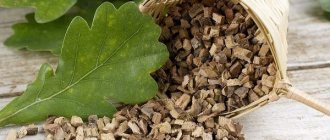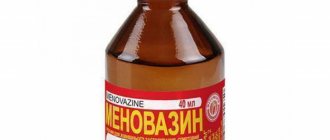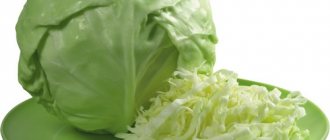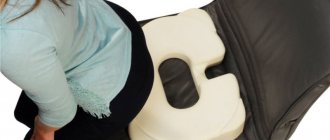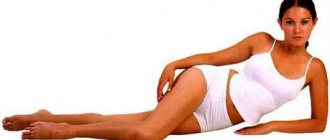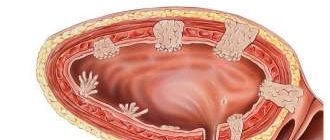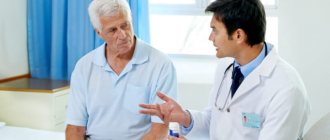The problem of hemorrhoids has been repeatedly touched upon in medical articles. For interested readers, the main and secondary causes and symptoms of this disease, as well as the treatment methods used, both conservative and surgical, were listed in detail.
At the same time, although general information is also important for understanding the nature of the disease under discussion and the approaches to its clinical therapy, patients often want answers from the proctologist to more specific questions regarding the recommended lifestyle, the advisability of following a diet, prognosis for cure, etc. In order not to Leaving aside nothing that may concern patients suffering from this delicate ailment, detailed answers to the eight most frequently asked questions about anal hemorrhoids will be given below.
Is it true that hemorrhoids are a lifelong diagnosis?
No it is not true. Hemorrhoids are indeed regarded by medicine as a recurrent disease, but this statement also has its own nuances.
In particular, sometimes the expansion of hemorrhoidal veins is caused not by external factors (weight lifting), but by internal problems with the venous system. Weakness and thinning of veins throughout the body can lead to a number of diseases, the list of which includes hemorrhoids. Completing a full course of vascular therapy will help solve this problem.
Healing properties of ice
Treatment of hemorrhoids with cold is presented in two directions: temporary alleviation of symptoms and complete elimination. The treatment method is approved by traditional medicine due to the beneficial properties of ice:
- Spasmodic action. When the nerve endings are exposed to cold, the areas of the lower rectum are “frozen”, which reduces sensitivity, helping to reduce pain.
- Impact on blood vessels and weakening of blood flow. Ice helps cause vasospasm, which slows down blood flow, ceasing to put pressure on hemorrhoids and soothing pain.
- Stop bleeding. By slowing down the blood flow in the vessels, the process of tissue regeneration is accelerated, and bleeding wounds in the anal area are healed.
- Destruction of affected tissues. When treated with ice, dead cells in the lesions are rejected, the resorption of hemorrhoids is accelerated, saving the patient from the need for surgical removal of the latter.
What is the most effective method of surgical treatment of hemorrhoids?
This is the wrong way to pose the question because at different stages of the disease different methods of radical therapy are used.
In particular, sclerotherapy is most effective for primary hemorrhoids that are detected in the early stages. Laser vaporization is more applicable for chronic, unadvanced forms of the disease. And the removal of hemorrhoids through hemorrhoidectomy, including the radio wave method using the Surgitron apparatus, is indicated for external prolapse of the nodes in the later stages.
Urologist-andrologist, urologist of the highest category Nizamutdinov Vadim Munirovich
ice for hemorrhoids
Treatment (for pregnant and lactating women):
1. Natalsid suppositories, 1-2 times a day, after using the toilet.
2. Detralex or Troxevasin tablets, 3 times a day (it is better to discuss with a gynecologist)
3. Compresses: heparin ointment and troxevasin, squeeze onto gauze/bandage/cotton pad, mix, apply tightly to the nodes (you can just smear the nodes themselves, but it was very painful for me, so I like compresses better. I change them every 2 hours.
4. A couple of times a day, instead of such a compress, I apply gauze with sea buckthorn oil.
5. No toilet paper! Shower only!
6. Bandage.
Below are many, many letters and the last week and a half of my struggle with Mr. G.
I hope my story will help someone)))
I have been familiar with this infection for 12 and a half years (it appeared after my first birth, in 2004), that is, I was SURE that I knew everything about it, having experienced several exacerbations... But no, WHAT it is and HOW it can actually worsen, I found out only 9 days ago, at 35 weeks pregnant with twins...
It all happened last Thursday (January 12). I sat in line for an ultrasound for exactly 2 hours, came home with terrible pain and a lump... I could no longer sit down.
I lay down on the sofa and howled and started looking for information on the Internet about ointments that I used to save myself from this scourge outside of pregnancy. There are 3 wonderful ointments, for which I once, during an exacerbation, ended up in a cool clinic, gave 5 thousand))) (I arrived for an appointment, they straightened the knot and gave me a miracle bag containing: Levomekol, Hydrocortisone, Heparin ointment , bags of chamomile for brewing (for baths) and Detralekt tablets (for varicose veins), I then paid 5000 for this “course” of treatment and 1000 for the reception, it was 2008 and a lot of money), but it really helps and has been for almost 10 years , at the slightest hint of discomfort “there”, I applied these ointments and got rid of the troubles in a couple of days. For reference: at the pharmacy these ointments cost pennies, tablets - 600 rubles, but in theory you need to drink them periodically, in courses, for those who have a hint of varicose veins.
Alas, these ointments turned out to be contraindicated during pregnancy... I search for further information, the pain increases, I send my husband to the pharmacy for sea buckthorn oil and sea buckthorn suppositories. I’m looking for folk remedies, I find out about grated potatoes and ice, I do it, it relieves the pain a little while it’s cold, then the pain increases with renewed vigor.
The first night was hell, I didn’t sleep at all, I made compresses from sea buckthorn oil, after 40 minutes I changed it to a potato compress, after another 40 minutes I washed myself with cold water (at 35 weeks pregnant with twins, with hemorrhoids like mine, climb into the bath and back - a feat, any movement brings such pain). How I waited for the morning... I was hoping for doctors (naive). In the morning I called the consultation office (I’m registered at the City Perinatal Center), my lady is on sick leave, instead of her “some kind of doctor” says in response to the description of my problem: “oh, I don’t even know what to advise you, call the city hospitals..."
I called all paid proctology clinics, no one accepts pregnant women...
Friday is spent on forums, on the phone and in terrible, simply hellish pain. I'm in pain, scared, I'm crying from the tearing pain, from fear for my girls, from helplessness. I go with great difficulty, just go to the bath, change the next compress and put on a candle with sea buckthorn.
The second night also passed without sleep; I was able to sleep only from 5 to 6, with a piece of ice.
Saturday - I lie and cry, crawl on all fours to the bath to change the compress, potatoes/oil/potatoes/oil, then I lie and cry again.
In the evening, my husband called an ambulance, they didn’t even bother to look at me, they offered to take me to the hospital, but they warned that no one would do anything to me at night, so it was better to go ourselves in the morning, so they decided...
It’s night again...again without sleep...I read medical forums, I find out about such a thing as hemorrhoidal thrombosis, I take a mirror, crawl into the bath, look, in shock, I have a blue lump there. I crawl back onto the sofa, I’m already reading about thrombosis... I’m just blown away... WHY is not one article for expectant mothers, with advice and folk methods, written about the main thing... There are hemorrhoids, in various stages, with different numbers of nodes, there is internal, there is external, there is, in the end, just an anal fissure, but there is HE - THROMBOSIS of the hemorrhoid! He doesn’t care about your ointments, suppositories, various compresses, ice and knee-elbow positions, there are blood clots that need to be removed.
I read it, it became a little easier mentally, the fear went away a little, but the pain is only growing. I apply ice and sleep from 6 to 9 am.
On Sunday we go to the regional hospital, at the reception I say this - I have thrombosis of the hemorrhoidal node, they draw up a card, send me to the examination room, wait for the doctor. The doctor comes, looks, and says: “yes, indeed, acute hemorrhoids of the second stage are thrombosis. Thrombectomy is necessary, do you know what that is? Yes, I found out about her at 2 am, on the 3rd day of torment, I even prepared myself mentally.
They are quartzing the operating room, I’m waiting, I’m not even afraid anymore, I understand that it will be easier, there is a chance.
I go in and undress.
“Are you allergic to medications? Can you tolerate icecaine? - No allergies.
I lie down on my side, they give an injection, it doesn’t take, they give another one, it doesn’t take either (everything is too inflamed), well, to hell with it, I’m already ready for the living, the doctor cuts the node, removes the blood clots, 5-7 minutes, no more. They make a bandage, write a certificate, give recommendations and send you home, even allowing you to drink paracetamol, it’s already a long time, it won’t harm the children.
Recommendations: baths with potassium permanganate (I don’t do it, I still can’t sit, I spray everything with Miramistin and peroxide), heparin ointment, Traxevasin or Detralex tablets. If it gets worse, come to the appointment.
On the way home I take a paracetamol tablet, while we drive the pain dulls, we arrive home, I go to bed, I sleep for 3 hours like an elephant, I just passed out. I get up (still, excuse me, “cancer”), crawl into the bath, take off the bandage, look at it somehow, the inflammation seems to be subsiding, well, I really want to believe in it... I make a compress (I squeeze out heparin ointment and troxevasin onto gauze and apply it to the nodes) , I change the compresses every 2 hours, I don’t cry anymore, it hurts, but it’s tolerable, I sleep at night.
So another 2 days passed, I went for a CTG and talked to a gynecologist. We write CTG lying down; sitting is completely impossible. The gynecologist asks for a proctologist’s report with a diagnosis and method of delivery, the ACL is in question... I don’t want to, a new wave of panic hits me, like me, with such an ass, a stitch from a CS, and even with two babies... And I’m about to give birth...
And it’s not getting better... but not worse, this cheers me up and goes to the proctologist who saw me on Sunday and performed a thrombectomy. Oh, and the node that was opened began to bleed, it’s normal, a lot...
I come to the appointment, looks at it, says that it has become a little better, but it will not go away completely, and it is unlikely to get even better, since the reason is the very high pressure of the uterus, after all, there are two babies there. He gives me a certificate for independent delivery, prescribes suppositories for bleeding - Natalsid, wishes me good luck, an easy birth and is waiting for me 3 weeks after birth.
I buy suppositories, I have been using them for 3 days, I continue compresses every 2 hours and I believe that I will still recover a little before giving birth.
Today is the 6th day after thrombectomy and I really feel better, that’s why I’m writing, I was waiting for improvement, so that only after that I could write so that everything would be checked and not give unnecessary hopes. Today I can even sit down gently on a pillow, and yesterday I had a CTG, though half-butt-half-sideways, but I was sitting. The knots decrease, the pain goes away, the mood improves. A week ago I had 4 nodes, measuring 5-7 cm!!! Today there are 3 nodes, the one that was cut has decreased from 7 cm to about 1.5-2, it has stopped bleeding, but I continue the suppositories, they are also for inflammation, until I stop, they are absolutely harmless for pregnant women.
It turned out to be a lot of text and somehow not very coherent, but I hope my experience will be useful, if you have any questions, ask, I will help as best I can)
Let me summarize:
1. If you suspect the appearance/exacerbation of hemorrhoids, be sure to take a mirror and see what is there and what it looks like (rule out thrombosis, or, pah-pah-pah, of course, confirm, treatment will depend on this, I lost 3 days)
2. Do not believe posts/forums/articles that say that it cannot be cured before childbirth! The nodes may remain, but the pain and inflammation can and should be relieved, this is REAL.
Treatment (for pregnant and lactating women):
1. Natalsid suppositories, 1-2 times a day, after using the toilet.
2. Detralex or Troxevasin tablets, 3 times a day (it is better to discuss with a gynecologist)
3. Compresses: heparin ointment and troxevasin, squeeze onto gauze/bandage/cotton pad, mix, apply tightly to the nodes (you can just smear the nodes themselves, but it was very painful for me, so I like compresses better. I change them every 2 hours.
4. A couple of times a day, instead of such a compress, I apply gauze with sea buckthorn oil.
5. No toilet paper! Shower only!
6. Bandage.
Prevention measures
Applying ice to the inflamed area is not recommended. First you need to prepare the skin for contact with low temperatures, otherwise this may negatively affect the health of the vascular wall. Due to the fact that it is weakened by the inflammatory process, a rupture may occur, and, consequently, copious bleeding. Therefore, it is important to adapt the skin to the cold. To do this, you can moisten a tampon in cold water and insert it into the anus. Before using candles, it is best to use cold baths or compresses.
There is no need to force yourself and endure if unpleasant sensations arise from time to time during the cold procedure. In any case, you can replace ice suppositories with diagnosed hemorrhoids with baths and the like. If any procedures involving ice cause severe discomfort, you should consult your doctor. It must be remembered that cold intolerance is also a contraindication.
During cooling procedures, it is necessary to carefully monitor your health, because cold affects the human immune system, it slowly weakens. It is best to maintain immunity through moderate physical activity, eating vitamins and timely treatment of diseases.
Strong physical exercise not only helps support the immune system, but also prevents the development of hemorrhoids
Contraindications
It is prohibited to use ice for hemorrhoids in the following cases:
- proctitis in the acute stage;
- thrombosis of nodes;
- fourth stage of pathology;
- large sizes of nodes;
- during pregnancy - the immunity of pregnant women is reduced, so any exposure to cold, and especially ice, can provoke inflammation;
- oncological diseases;
- epilepsy;
- cardiovascular diseases;
- acute viral infection;
- skin diseases;
- sensitivity to cold. If a person is used to taking a cold shower in the morning and dousing himself, then it will not be dangerous for him to use ice for hemorrhoids. But if a person has never been hardened, the cold causes strong internal resistance in him, then it is better not to use this method of therapy.
Doctor's opinion: “Cold for hemorrhoids is used to quickly relieve inflammation, but not for permanent treatment. Be sure to consult your doctor. For patients with urological problems, using ice as a lotion is strictly prohibited!”
THERE ARE CONTRAINDICATIONS CONSULTATION WITH YOUR DOCTOR IS REQUIRED
Author of the article Alexey Alexandrovich Egorov, proctologist
Write your opinion
Drug and minimally invasive treatment
Treatment of hemorrhoids at the initial stage can be carried out at home, since no special measures are required yet. The doctor usually prescribes the following:
- a course of vascular-strengthening drugs;
- suppositories for hemorrhoids to relieve pain, itching and other unpleasant sensations, as well as to fight inflammation and reduce lumps, heal, stop bleeding;
- therapeutic diet and special physical training after the exacerbation is relieved;
- To relieve pain and itching, it is recommended to use cold compresses, ice packs, warm chamomile baths,
During the second and third stages, when conservative methods are ineffective, minimally invasive procedures are prescribed such as:
- Sclerotherapy - substances are injected into the node that seem to glue its walls together. As a result, the tissues stop receiving nutrition and die.
- Infrared photocoagulation, electrocoagulation - the essence of the method is that the leg of the node is cauterized, and its tissues are deprived of nutrition, stick together and die.
- Ligation with latex rings is used for internal hemorrhoids of stages 1-3. Using an anoscope, a ring is placed on the leg of the node, which compresses the small vessels feeding the node. After about two weeks, the dead node is brought out along with the ligature.
- Cryotherapy is a short-term exposure of the node to liquid nitrogen. The goal is the same - to stop the blood supply to the tissues of the node. After that it disappears on its own.
The listed remedies for hemorrhoids are effective for small bumps, but they cannot be used for thrombosis, anal fissures, acute inflammation, and injuries.
Benefits of cryotherapy and features
It is more effective and safer to treat hemorrhoids under the supervision of a physician in a medical facility. By incorrectly using ice suppositories for hemorrhoids, you risk aggravating the situation, which will entail expensive treatment with surgery.
On pharmacy shelves you will find the Crinus remedy for hemorrhoids in the form of a small plastic tube with a special liquid. The main advantage of using the tube material and liquid is not water, but a solution of chemical elements that help in the healing and restoration of the body. The product does not have to be applied directly to the affected area, risking catching a cold.
Therapy is used for chronic hemorrhoids after surgery. The solution for the Crinus device is placed in the freezer for two to three hours until completely frozen. During the procedure, to treat the external form of the disease, the widened part of the tube is placed between the buttocks; to treat the internal form, the narrow part of the device is inserted into the rectum. These actions are carried out for a quarter of an hour three times a day. After a week of the course, hemorrhoids heal without leaving scars. The recommended course of treatment is three to four weeks.
To avoid adding additional problems to hemorrhoids, carefully read the list of contraindications to the procedure:
- Inflammation of the uterine appendages, cystitis.
- Prostatitis.
- ARVI, viral infections, fear of triggering acute respiratory infections during pregnancy.
- Oncology.
- Skin diseases.
- CNS lesions, epilepsy.
- The size of the hemorrhoids is too large, requiring the help of a surgeon.
Proctologists, when prescribing a course of cryotherapy for acute pain and frequent bleeding, recommend suppositories with the effect of reducing swelling. Using “ice” treatment methods is dangerous for hypotensive patients.
Cryotherapy reduces symptoms but does not eliminate the disease. It would be a good idea to read reviews about the ice treatment method.
